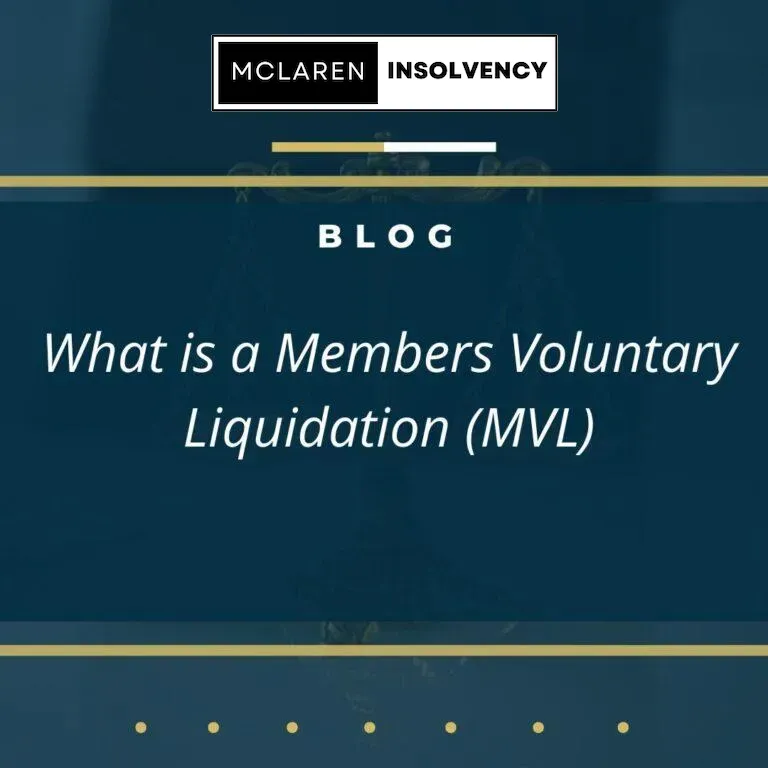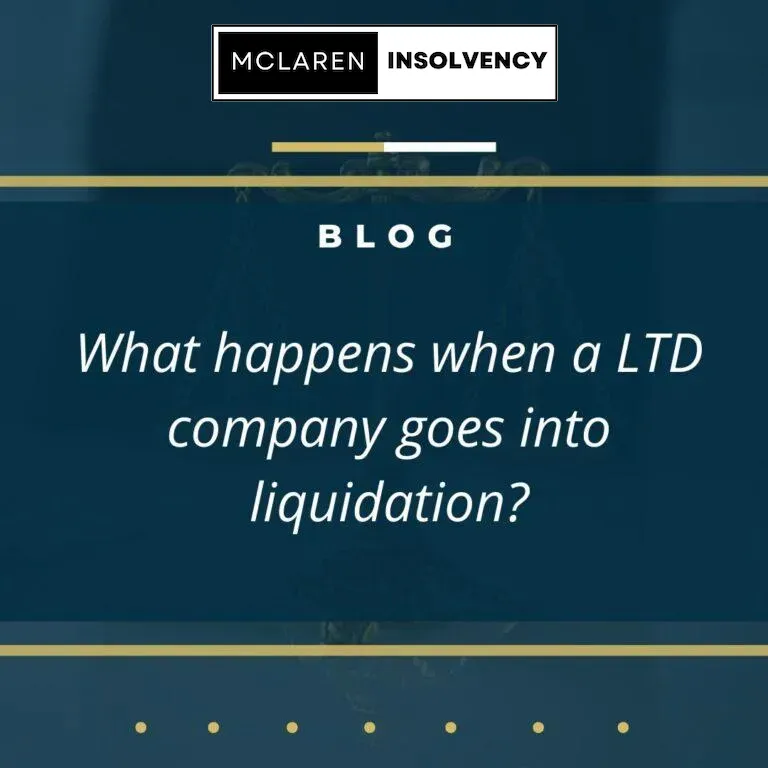What does it mean for a company to be a going concern?
When a firm operates as a going concern, it signifies that it is likely to continue trading for at least 12 months without the prospect of liquidation. The company is not at risk of failing due to insolvency, but it can be counted on to survive and thrive for the foreseeable future.
If a firm is undergoing serious financial decline and insolvency is a real possibility, determining whether it is a going concern is important for its future and financial statements. It determines whether the firm must stop operations in order to protect its creditors, which is a legally required duty for directors of limited companies under the UK insolvency legislation.
So, when does a company become a going concern, and what does that mean in the context of its financial statements?
McLaren Insolvency Practitioners is the UK’s premier business rescue and recovery firm, and we can give you the independent counsel you need. We will professionally examine if your firm is a going concern and provide practical, dependable assistance as needed.
When is a business considered a going concern?
The information shown in the company’s accounts decides whether or not it is a going concern. Accounting data must be accurate in order to present a fair view of the business as a whole.
To assess going concern, companies should do frequent cash flow evaluations, establish budgets and sales forecasts, as well as half-year and full-year financial statements. This puts directors in a good position to make an informed assessment of their company’s current situation.
Company borrowing should also be reviewed and assessed in terms of the company’s ongoing ability to repay to continue as a going concern. Furthermore, the possibility of contingent liabilities, which could tip the scale towards insolvency, is a significant issue that can have an impact on a company’s solvent state and its ability to continue as a going concern.
What are the indications that a company may not be a going concern?
There are specific indications that a company is no longer considered as a going concern or is on its way to becoming so. This includes:
Insufficient cash flow
Not being able to get credit or borrow money puts severe constraints on a company’s ability to continue as a going concern.
Increasing percentages of bad debt
Unable to meet current obligations, such as loan repayments.
Lawsuits against the company that are either pending or have been threatened could affect its ability to continue as a going concern.
Directors must get expert insolvency advice as soon as possible if any of these potentially harmful concerns arise. Acting quickly in this regard can save a failing business from the need to cease trading and liquidate. Not being classed as a going concern means the company is not going to continue operating in its current state while continuing to meet its obligations.
Can you sell a business as a going concern if it is insolvent?
It might still be possible to sell an insolvent business as a going concern if its financial statements support such a sale.
Company admin
Employment contracts can be protected under TUPE legislation, or the Transfer of Undertakings (Protection of Employment) regulations, if a business is found to be a going concern and is sold to a third party out of administration. Jobs can be preserved and business continuity can be ensured in this way, allowing the company to continue as a going concern.
Pre-pack admin
An open market sale of a company as a going concern may be possible, although a pre-pack administration sale may be more suitable. This means disposing of the company’s core assets before starting a new endeavour, sometimes to the same directors.
Company Voluntary Arrangement
Apart from company management and pre-pack administration, struggling businesses attempting to preserve their status as a going concern may find that a Company Voluntary Arrangement (CVA) is a suitable alternative. A CVA gives creditors a better return on their investment than other possible options by restructuring the company’s debts to make them more manageable.
CVAs also benefit corporate directors since they prevent them from losing control of the company. They can carry on, leading the company away from major financial problems in the long run and avoiding legal action by the creditors listed in the agreement.
Contact Us for more advice on being classed as a going concern
If you would like to learn more about going concern status and what it entails for your firm, please contact our partner-led team at McLaren Insolvency Practitioners. We can also provide auditor and accountant advice to discuss your financial statements and audits. We can provide you with reliable counsel and extensive insight into your company’s condition. Please contact us to schedule a free, same-day appointment; we have a large network of locations around the UK, so you’re never far from experienced assistance.

© 2025 - McLaren Insolvency Practitioners | All rights reserved
Privacy Policy | Complaints Policy | Provision of Services
ICO. Registration reference: ZB590513
Company Number: SC727432
George Dylan Lafferty, Gordon Neil McIntyre and Penny McCoull are authorised to act as Insolvency Practitioners in the United Kingdom by the Institute of Chartered Accountants of Scotland. Insolvency Practitioners are bound by the Insolvency Code of Ethics when carrying out professional work on insolvency appointments.










